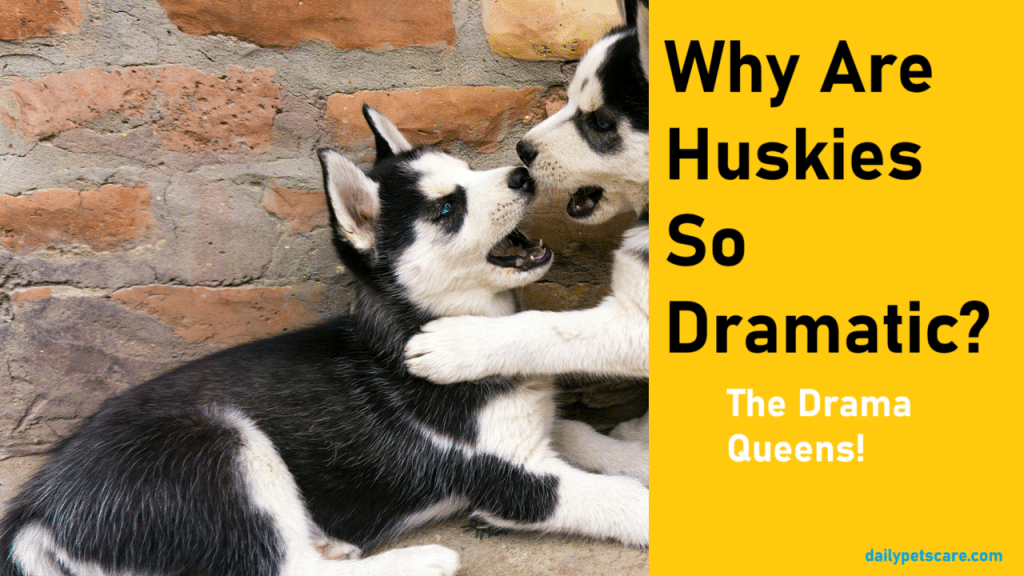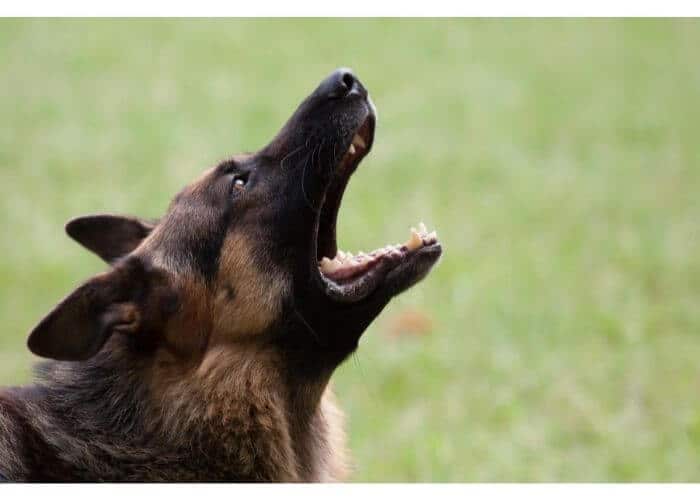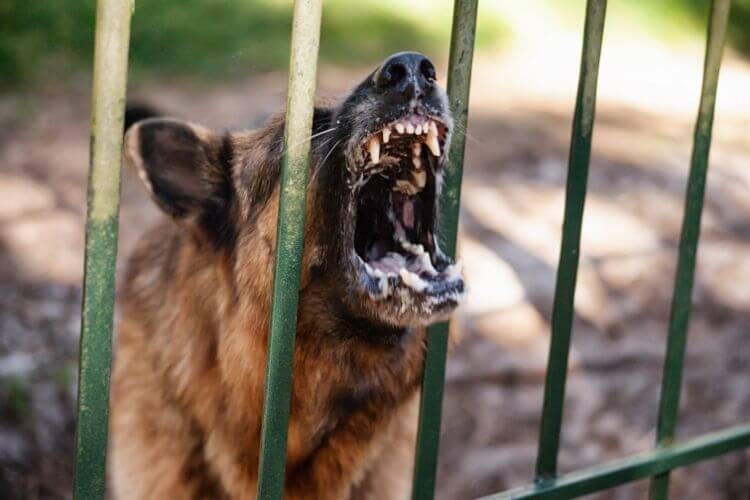The Husky dog breed is one of the most radical; no wonder we often refer to them as ‘drama queens.’ If you own one or have watched a clip of Husky tantrums, the most obvious question is,” Why are Huskies so dramatic?”
Huskies are so dramatic because of their hereditary traits and human response to this behavior. They are expressive vocalizers, intensively sensitive to surroundings, and self-reliant. Husky owners reward this conduct by paying attention; thus, they do it more.
However, some owners are worried about this behavior and don’t know how to calm their hyper dog.
This article explains the reasons behind Huskies’ dramatic behavior and how to manage it and live harmoniously with your canine friend.
Let’s dive in.
Why Are Huskies So Dramatic?
Huskies are so dramatic for various reasons, including the following:
- Natural strong-will
- Reactive Personality
- Talkative nature
- Human reward
- High Energy
Keep reading.
Natural Strong-Will
Since Huskies are naturally strong-willed, obedience training is challenging, especially for older dogs. They’re a stubborn dog breed, unwilling to learn but desire to do things their way.
Unlike other breeds like German Shepherd, which likes pleasing their owners, Huskies are headstrong and independent.
Huskies want you to promptly meet their demands during dinner, petting, or playtime. If you fail to do so, they’ll protest loudly, expressing their displeasure.
For instance, if you tell your Husky to stop doing something, like playing or staying outside, the dog may throw tantrums or ignore your command to display their frustration.
Reactive Personality
Familiar stimuli provoke a reactive breed, causing it to growl, bark, and lunge as it’s preoccupied with the emotional trigger. At that point, your dog may be difficult to control or get out of the scene.
While other breeds express discontent by barking or pulling on a leash, Huskies overreact to daily emotional triggers.
For instance, a weekly bath can make your Husky wail uncontrollably, while a siren may cause him to run around the house howling.
Chatty Nature
Huskies are a conversational dog breed. They vocalize a lot with whines, barks, yips, howls, and the occasional purr. Also, many Huskies are known to mimic human tonal patterns.
The trait emanates from the breed’s sled dog origin. It creates a cohesive pack environment, enhances proper communication among pack members during sledding, and signals a strong pack presence to ward off threats.
Huskies’ loud nature is a communication channel that lets the owner know his feelings towards everything.
Human Reward
Typically, the Huskies’ dramatic behavior attracts positive attention. Most owners respond to the caterwauls with amusement, unintentionally signaling to the dog that they’re happy with their acts.
It can be a talk-back or laughing off the action.
For many Huskies, their temper tantrum displays their frustrations and disobedience and make their pack members happy.
Your positive response encourages the dog to keep repeating the behavior.
High Energy
Huskies are high-energy dogs that require a lot of exercise to stay calm. To lower their energy levels, take your dog for long walks or short sprints, let him play vigorous fetch games, or dig holes.
Otherwise, your Husky will channel the energy into dramatic behavior that may harm other pack members, such as the cats.
Also, inadequate exercise may cause the hyper-energetic dog to get frustrated, bored, and agitated.
How Do I Manage My Husky’s Dramatic Behavior?
You can manage your Husky’s dramas using the tips below:
- Proper training
- Not rewarding improper behavior
- Trigger desensitization
Read on.
Proper Training
Personalize your Husky’s training technique to their unique temperament. Conventional dominance-based tactics may be ineffective for this dog breed or heighten their dramatic behavior.
Use positive reinforcement strategies such as rewards, treats, and praise, or take them to the K9 Training Institute for proper training.
Reward-based Husky training taps into his desire and willingness to please you in exchange for more rewards.
Your dog channels the dramatic energy to productive tasks and activities such as agility exercises or obedience training. Thus, she redirects the power and uses it positively.
Setting clear boundaries and consistency during training is also essential, as this helps your buddy know what’s expected of them.
Note: Positive reinforcement, understanding, and patience are crucial for successful training and dramatic behavior management.
Not Rewarding Improper Behavior
Not rewarding the Huskies’ dramatic behavior discourages your dog from repeating. There are unintentional ways of rewarding your Husky you should be aware of, including the following:
- Giving in to his protests. For example, allowing him to stay outside on a snowy day after a howl or whine shows that his behavior is convincing and she’ll do it next time.
- Getting angry at him. Shouting at your husky can significantly boost the mood of a bored or lonely Husky who seeks attention.
Only reward your Husky after she obeys your command. Even if she throws tantrums to express displeasure, wait until she does what you want and reward him immediately.
Also, plenty of love and attention keep your pup happy, away from uncalled-for dramas.
Trigger Desensitization
Desensitize your Husky to triggers of the dramatic behavior if the cause is fear or anxiety. Desensitization is effective in teaching your dog that what she fears is harmless.
Consulting a certified dog trainer also comes in handy.
Conclusion
Huskies are naturally dramatic, using their behavior to express their frustrations, boredom, and discontent. Although this behavior is hereditary, your dog can unlearn it over time.
This dog breed throws tantrums because of its strong will, chatty nature, reactive personality, owners' positive response to dramas, and high energy levels.
Fortunately, you can manage your Husky’s unwanted behavior by not rewarding tantrums, providing proper training, and desensitizing him to the triggers.
Follow this article’s guidelines and enjoy the calm company of a drama-free Husky.


